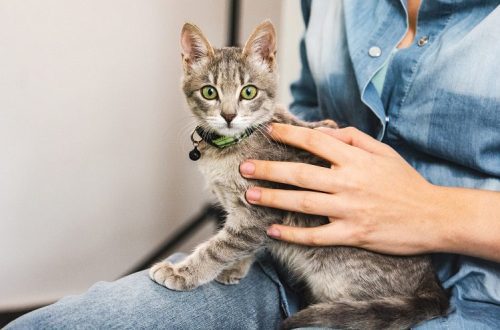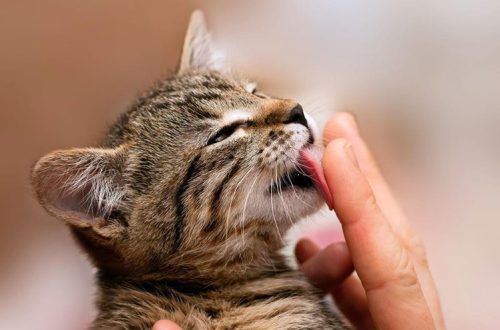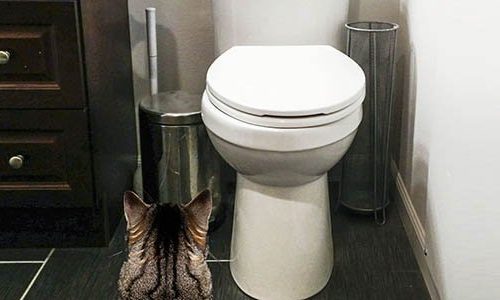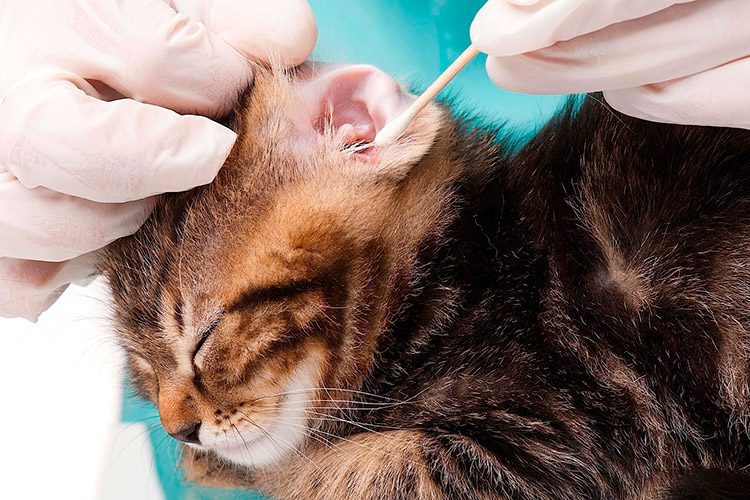
How to care for kittens
The key to the well-being of a little four-legged friend is not only proper nutrition and active games, but also hygienic care for the eyes, ears, claws, mouth and coat, which should be taught to a kitten from an early age.
For many adult cats, examination and hygiene procedures are a real stress, although there is nothing terrible and unpleasant in the competent process of caring for a pet. The problem is that many owners, unfortunately, do not pay due attention to hygiene procedures and do not teach their pet to them from an early age. Of course, if an adult cat suddenly began to examine the oral cavity and clean the ears, she will treat this activity with caution and without much sympathy. Another thing is a pet that has been taught to be examined and groomed since childhood, he has long been familiar with various care procedures and knows that they will not bring him any harm. Moreover, competent care even helps to build a trusting relationship between the owner and the pet, because this is a direct interaction during which the two parties get to know each other better.
So, now we know why kittens are taught to groom from childhood, but how often should they be examined and hygienic procedures? And it depends on several factors. Firstly, on the breed of your pet, since each breed has its own characteristics and, accordingly, recommendations for care, secondly, on the age of the cat, and thirdly, on the state of her health. It is important to note here that the purpose of examination and grooming is not only a neat appearance of the pet, but also its well-being, since regular combing, for example, helps maintain healthy skin and coat, and periodic examinations allow you to detect various diseases in a timely manner and prevent their development. .
It is recommended to examine the kitten at least once a week. Inspection begins, as a rule, with the eyes and ears. Healthy kitten ears are always clean: there are no strong discharges, rashes and sores on the auricle, the ears should not smell unpleasant.
Of course, small amounts of earwax are natural for a kitten, they do not have an unpleasant odor and do not indicate malaise, and they can be removed from the auricle with a simple cotton swab moistened with a special ear cleaner. The pet’s eyes should also be clean. Healthy eyes are always clear and shiny, they do not have purulent secretions, they do not water, and the eyelids do not redden or swell. If you notice that the ears and eyes of the kitten are not in the best condition, it’s time to contact the veterinarian: perhaps we are talking about an infection that needs to be treated as soon as possible.

Next, we move on to examining the nose and oral cavity. The nose of a healthy kitten is clean, without discharge, and breathing is measured and free. Examining the oral cavity, we pay attention to the condition of the mucous membranes, gums and teeth. The mucous membranes should be pink, without ulcers, plaque and inflammation, and the teeth should be free of tartar.
Then comes the turn of the claws: the claws should not be too long and exfoliating. It is necessary that at home the pet always has a kitten on which he can grind his claws. Also, from time to time it is recommended to carefully shorten the pet’s long claws with the help of special nail clippers. Attention: be careful and in no case touch the blood vessels (pulp), otherwise you will cause severe pain to the pet and you will have to stop the bleeding.
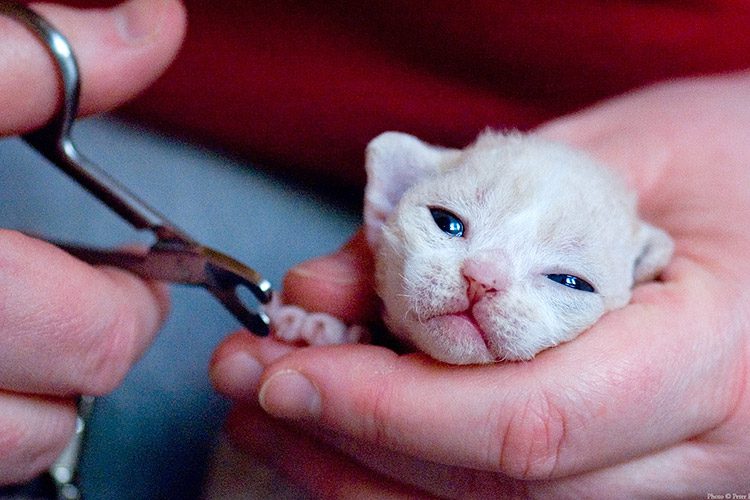
When it comes to grooming, it’s best to brush your kitten every day. Yes, the baby’s coat is soft and fluffy, it practically does not fall out and does not bring inconvenience to the owner, however, our main goal is not only to keep the coat in good condition, but also to accustom the kitten to the combing procedure, so that later he perceives it calmly and even with pleasure. In addition, combing is a kind of massage that stimulates blood circulation, and a reliable way to maintain the health of the skin and coat, so you should not neglect it in any case.
Your pet’s coat can be short or long, some kittens may not have fur at all – in a word, each breed has its own characteristics and each cat requires its own tools and tools to care for. Do not forget about the skin: it also needs to be examined. Redness and sores on the skin may indicate allergies or the presence of parasites, be careful and consult your veterinarian if you have questions.
Speaking about skin and coat care, one cannot help but touch on the topic of bathing cats: Do I need to bathe my pet and, if so, how often? There are many opinions on this matter. In general, cats are by nature very clean and tidy, they often wash themselves and do not need special bathing. However, if the pet’s coat gets dirty quickly and looks untidy, you can and even need to bathe the cat, but you should not abuse this activity. For the procedure, you should use special products for washing cats, human cosmetics for caring for animals is categorically not suitable. After bathing, do not forget to dry your pet so that he does not catch a cold.
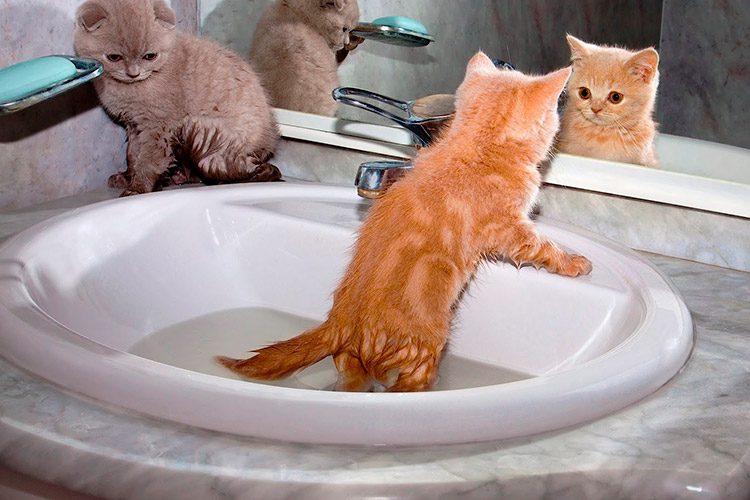
And do not forget that the indispensable attributes of competent pet care are care, goodwill and accuracy. In no case be rude to your four-legged friend, do not punish him if he tries to avoid an unpleasant procedure – this way you will only aggravate the situation. Teach the kitten to grooming from childhood, convey to the baby that you do not harm him, but, on the contrary, worry and take care of him. And believe me, then regular grooming will not be a source of stress for your pet, but an additional opportunity to communicate with the owner and feel his care – and what could be more important?



